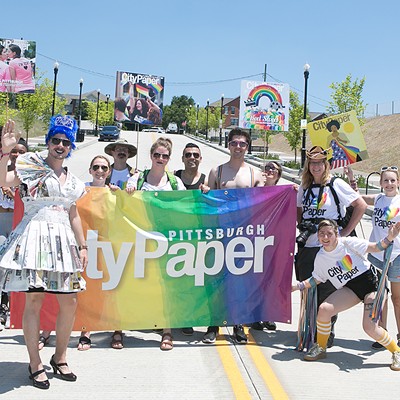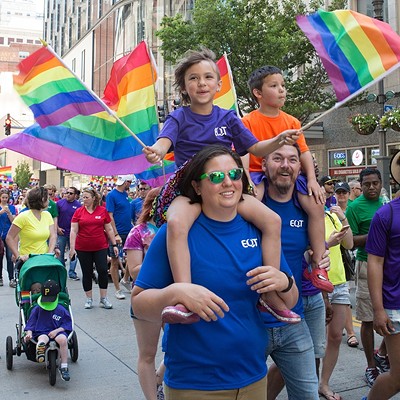Wednesday, October 30, 2013
Study: A Bleak Health Outlook for Young Pittsburgh Lesbians and Bisexuals
It's well known in the LGBT public health community that there are higher rates of substance abuse and mental health problems in gay and bisexual men compared with their heterosexual counterparts. But sexual minority girls haven't been the subject of much research, something Dr. Michael Marshal is hoping to help change.
Marshal, an associate professor of psychiatry and pediatrics at the University of Pittsburgh, has just published a study funded by the National Institute on Drug Abuse that looks at health outcomes in young urban sexual minority girls ages 16-19 in Pittsburgh, with a particular focus on whether African American girls who identify as lesbian or bisexual have worse health outcomes than their European American counterparts.
The results are striking: of the lesbian and bisexual girls surveyed, they were four times more likely to report marijuana use or "suicidal ideation," compared with their heterosexual peers over the previous year. They were five times more likely to report cigarette use, and twice as likely to report alcohol use.
Symptoms of various personality and conduct disorders were significantly more severe.
In one sense, Marshal wasn't surprised. He expected more substance abuse and mental health problems in sexual minority girls than heterosexual girls. That's partly due to the "minority stress hypothesis" — the idea that being in socially excluded groups can lead to adverse health outcomes. But, Marshal says, "we didn't expect that the pattern of disparities would be so robust across a number of outcome variables."
And even more surprising were the study's findings that sexual minority African American girls generally fared no worse than their European American counterparts.
“African American youth have been exposed to racism ... from a very young age," Marshal explains as one of the reasons he expected worse health outcomes in African American communities.
But Marshal speculates that a legacy of racial discrimination may actually make sexual minorities in the African American community more resilient. "They have many people in their social networks that can help them learn how to cope," Marshal says. "I’m impressed with how many resilient gay youth there are, youth who are able to cope well with persistent and pervasive societal-level homophobic discrimination and victimization," he wrote in an email.
Still, Marshal acknowledges much more investigation is needed, especially because he's dealing with one population sample and "this might not apply to girls in Columbus, Ohio or New York City.”
Moreover, researchers haven't yet compared sexual minority boys and sexual minority girls to see if gender plays a role in health outcomes (though some research shows gender can help explain disparities in rates of anxiety and substance abuse). And there are no studies on disparities in transgender youth, Marshal says, "However we do know they’re highly vulnerable populations."
Because there is so little research in the field, it isn't really possible for Marshal to give a definitive answer to questions about how these disparities should be addressed. He calls for more intervention and prevention efforts, even though there isn't much research showing what efforts might significantly help.
And that's exactly the call he makes in the last sentence of his paper in latest issue of the Journal of the American Psychiatric Nurses Association. "Researchers, clinicians, and especially [sexual minority girls] and their families will benefit from more research [...]"
Tags: LGBT , sexual minority girls , study , Michael Marshal , research , LGBT health outcomes , minority women













